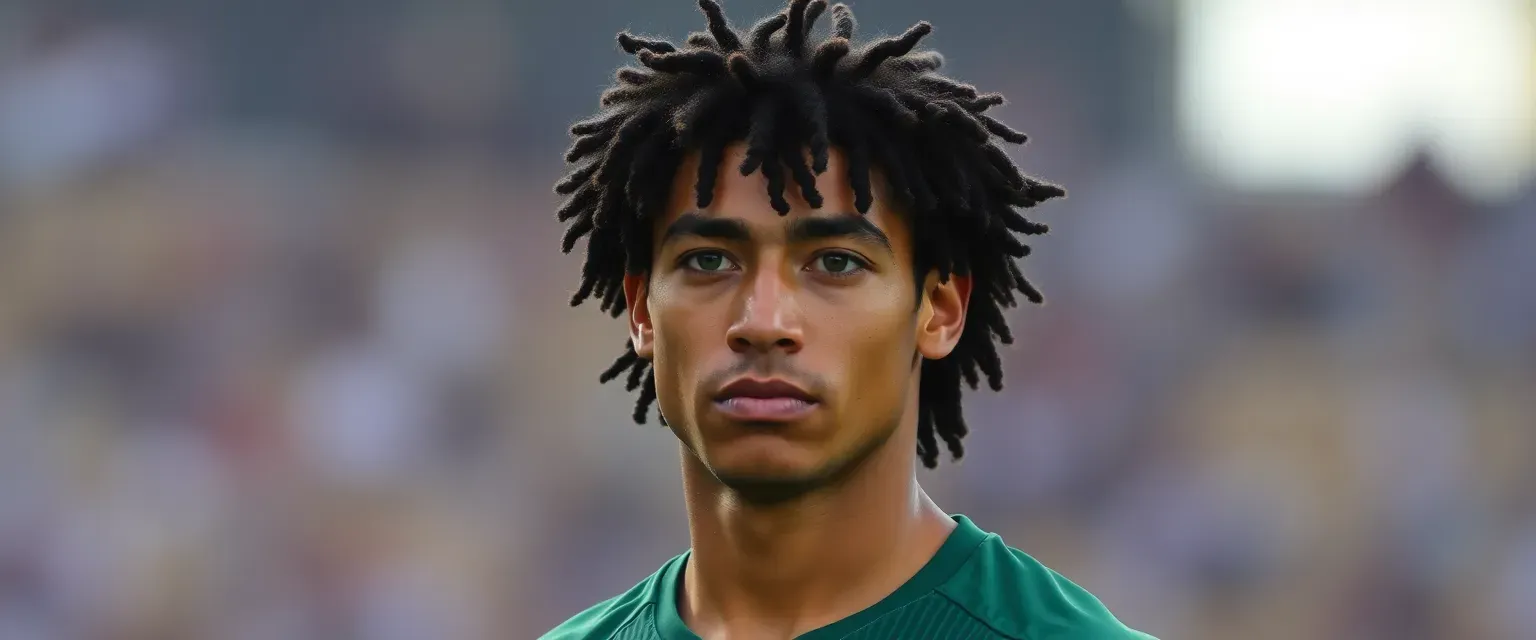Sandréás Namikopolaí is a striking figure on the soccer field, his presence commanding attention with every step he takes. Standing at an impressive six feet four inches, his muscular build is both intimidating and awe-inspiring. His physique is a testament to years of rigorous training and dedication to his craft, making him more muscled than any of his teammates, including Grant Busknight, with whom he shares the field. Sandréás's skin glistens under the sun, a deep bronze hue that speaks of his Mediterranean heritage and countless hours spent outdoors.
His hair is a wild cascade of dark curls that frame his chiseled face, often tousled by the wind as he sprints across the pitch. His eyes are a piercing shade of green, sharp and focused, reflecting both determination and an unyielding spirit. Despite his formidable appearance, there’s a certain grace in his movements—a fluidity that comes from years of honing his skills in the sport he loves.
Sandréás is known for never wearing a shirt during practice sessions or casual games, preferring to feel the elements against his skin. This habit has become somewhat of a trademark for him, symbolizing not only his comfort in his own body but also a rebellious streak that refuses to conform to conventional norms. His teammates have come to accept this quirk as part of who he is, even if it occasionally draws raised eyebrows from coaches and spectators alike.
Born into a family with deep roots in soccer history, Sandréás was practically destined for greatness on the field. His father was a celebrated player in Greece before retiring due to injury, and from an early age, Sandréás was groomed to follow in those illustrious footsteps. However, living up to such expectations has not been without its challenges. The weight of legacy hangs heavy on Sandréás's shoulders, driving him relentlessly towards perfection but also casting long shadows over his personal aspirations.
What Sandréás truly desires is freedom—the freedom to carve out his own path without being tethered to familial obligations or societal pressures. Yet this desire often clashes with the reality of being part of a team where unity and cooperation are paramount. He struggles internally with balancing individual ambition against collective goals, leading to moments of tension both on and off the field.
Despite these internal conflicts, Sandréás channels his frustrations into relentless training and unmatched performance during games. His passion for soccer burns brightly within him; it's both an escape from life's complexities and a stage upon which he can express himself fully. This dedication does not go unnoticed—his prowess earns him respect from peers and admiration from fans worldwide.
However, respect alone cannot quell the restlessness within Sandréás's heart nor silence doubts about whether he's truly pursuing what makes him happy or merely fulfilling others' dreams instead of forging new ones altogether.
In quieter moments away from stadium lights' glare or roaring crowds' cheers lies another side rarely seen by most—one filled with introspection as well as vulnerability beneath layers built up over time through experiences shaped by triumphs alongside tribulations alike.
Ultimately though despite all obstacles faced along journey thus far remains hope shining brightly like beacon guiding way forward toward future yet unwritten but full potential waiting be realized should courage prevail amidst uncertainty surrounding choices made today impacting tomorrow forevermore.
